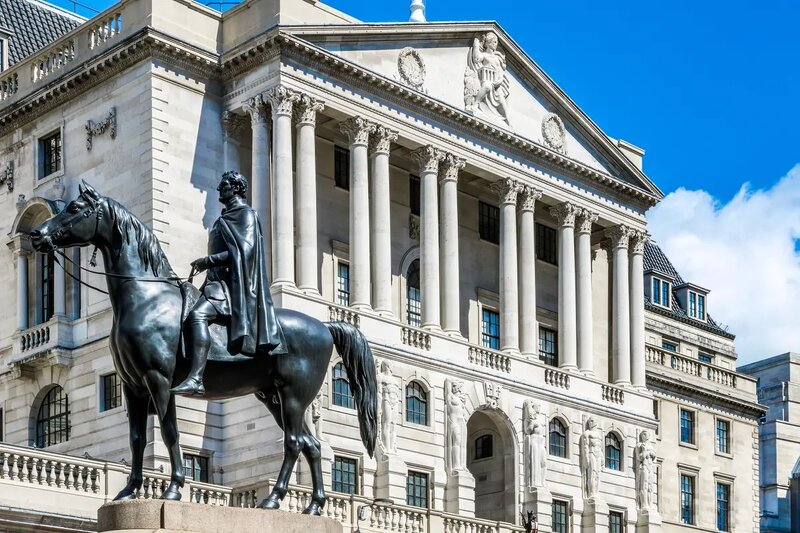Dear visitor,
You're reading 1 of your 3 free news articles this quarter
Register with us for free to get unlimited news, dedicated newsletters, and access to 5 exclusive Premium articles designed to help you stay in the know.
Join the UK's leading credit and lending community in less than 60 seconds.
Bank of England should set three percent inflation target, says thinktank
The Bank of England should increase its inflation target to three percent, according to a leading thinktank.

Senior Journalist, covering the Credit Strategy and Turnaround, Restructuring & Insolvency News brands.
This would come as part of a major overhaul to tackle the risk of an unsustainable ratcheting up of debt that would hamper Britain’s macroeconomic policy framework – which has largely been unchanged since the 1990s – from being able to respond to economic shocks or fund public services.
It comes as part of findings from the Resolution Foundation’s 46th report from its The Economy 2030 Inquiry – titled Built to last. Funded by the Nuffield Foundation, it notes several “once-in-a-lifetime" economic crises – coupled with weak growth in between – has left the UK with fast rising debt levels, with the UK’s debt-to-GDP ratio trebling from 36% in 2007 to its largest peace-time debt rise in more than 300 years.
It’s been primarily driven by the fact that there’s been huge fiscal interventions during these economic crises, driving up Britain’s debt, with only small falls in debt in between.
At present, policymakers are focused on the short-term problem of higher rates. However, if the UK stays in a new higher interest rates environment longer term and fiscal policy follows both main parties’ current policy of aiming to put debt on a gently falling path in the years between recessions, Britain’s debt ratio is on course to climb to 140% over the next half century.
And the authors of the report also caution that a return to a lower interest rates world – particularly if it’s matched by lower growth – as it could lead to even greater upward pressure on debt, as the very low rates will put more pressure on fiscal policy to support the economy during downturns.
In this lower rates world, Britain’s debt ratio would almost double to 190% of GDP over the next half century, even with debt gently falling between shocks.
As such, the Resolution Foundation has called for a reset of Britain’s approach to monetary and fiscal policy – with the two priorities being to reduce the pressure on fiscal policy to support the economy during a downturn by ensuring monetary policy has more scope to act, and to get more value for money for the amount the treasury spends supporting the economy.
To achieve this it proposes, among other things, a new approach to monetary policy that secure greater capacity to cut interest rates in a downturn – taking steps to allow negative rates of up to -1%, and raising the inflation target to three percent.
It also says government must make fiscal policy smarter, building the policy tools to deliver targeted support when economic shocks hit in the future – rather than the more expensive universal support deployed recently.
The Resolution Foundation’s research director James Smith said: “Britain’s recent run of major economic shocks has given us the largest peacetime debt increase on record.
“Continuing on a path of debt rising in each downturn but not being reduced between shocks will leave the UK’s public finances on an unsustainable path, requiring implausibly large tax rises or spending cuts.
“We need to reset the UK’s approach to macroeconomic policy. The Bank of England needs greater monetary firepower, secured by enabling slightly negative interest rates and taking steps to move to a three percent inflation target if we return to an ultra-low interest rate world.
“The government should plan now to be able to provide more targeted support in future recessions, having overspent by £35bn on poorly targeted schemes in the recent past. This reset would ensure we can support the economy in bad times and fix the fiscal roof when the sun eventually arrives.”
Stay up-to-date with the latest articles from the Credit Strategy team
Get the latest industry news






